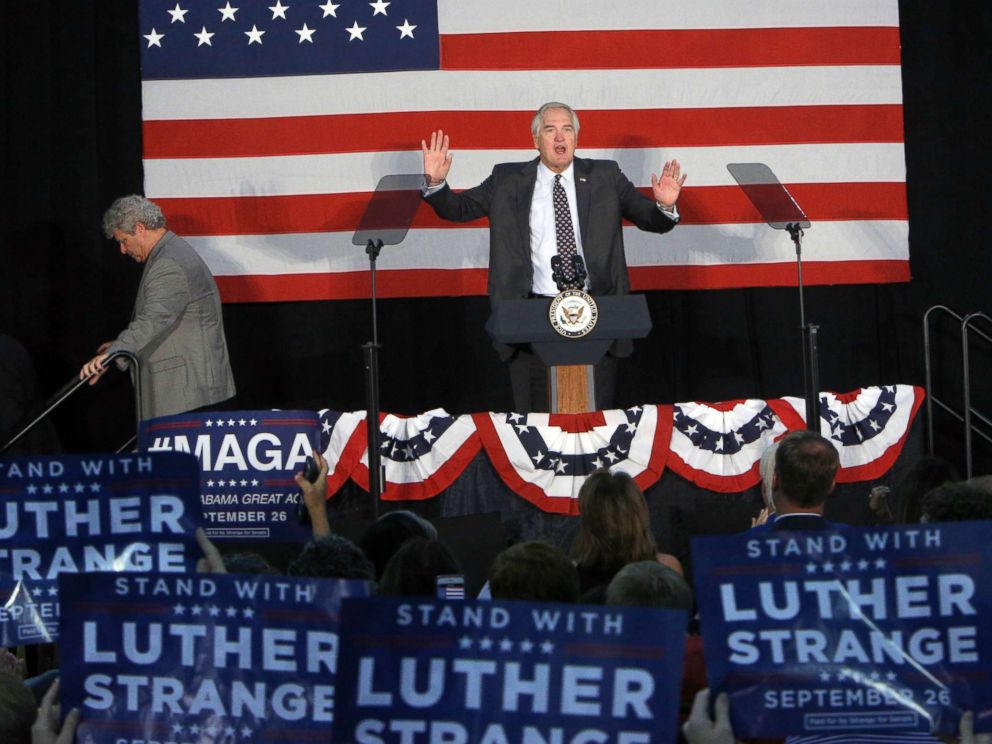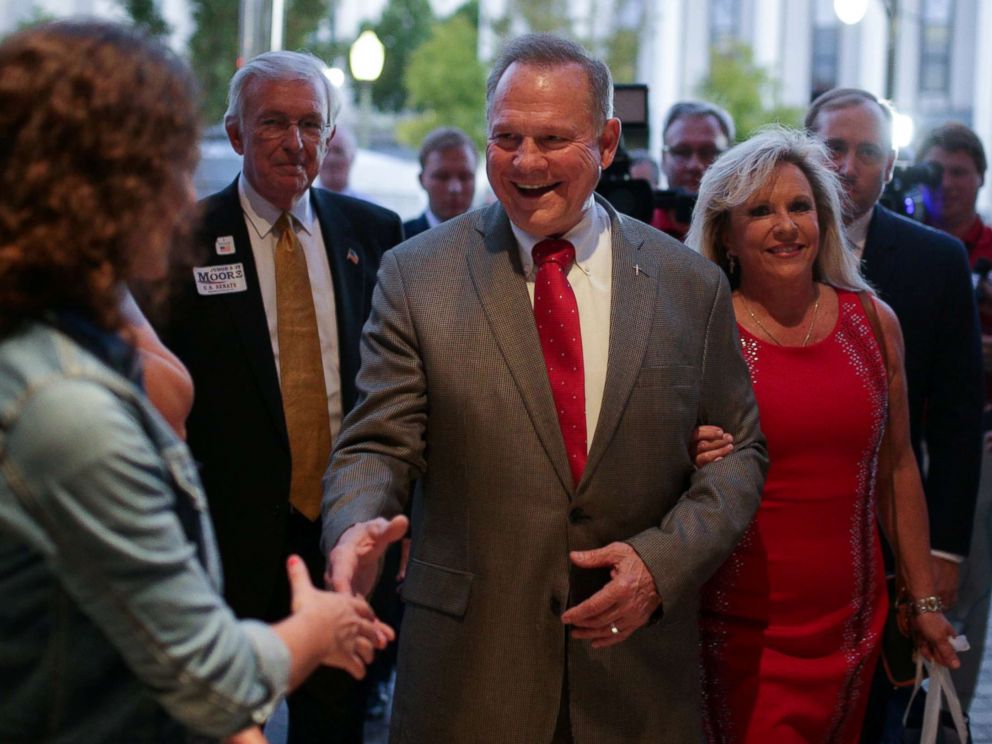ANALYSIS: Trumpism rolls over Trump in Senate race in Alabama
Even Trump can’t control Trumpism.
— -- Even Trump can’t control Trumpism.
The sweeping victory by Roy Moore in the Alabama GOP runoff is the first major electoral defeat for Trump, who endorsed and campaigned for appointed Sen. Luther Strange. It’s arguably a bigger loss for Senate Majority Leader Mitch McConnell, whose super PAC dumped millions into the race in a losing attempt to beat back a challenger he feared would make a difficult senator.
The Alabama Senate runoff leaves fragile governing coalitions with an even more tenuous grasp on power, leaving the Trump agenda in further peril and reordering the 2018 landscape. Still, the scrambling of political loyalties and agendas just might be a development President Trump would welcome.
This is a setback with consequences as nuanced as the odd circumstances that left Trump and McConnell on the same side of this peculiar race in the first place. Among the big winners is Steve Bannon, the president’s former chief strategist, who gambled that he and his allies could help beat back the president’s own pick in a state where Trump is deeply popular.
Bannon directly addressed the Republican establishment in his election-eve appearance for Moore, naming McConnell, Karl Rove, and other GOP leaders who supported Strange in suggesting that a movement is only building: “They think you’re a pack of morons. They think you’re nothing but rubes.”
Moore’s primary victory will invite Democrats to invest in a deep-red state in advance of the December general election. But the likeliest final outcome will be the addition a Republican senator with a famously combative streak that figures to have him frustrating legislative efforts.
Moore in the Senate will leave McConnell with yet another hard-to-corral member of his caucus -– maybe one more difficult to get in line than even Rand Paul or Ted Cruz. And the fear of further far-right primary challengers could make McConnell’s job even harder, while also convincing more Republicans in the House and Senate to contemplate retirement.

On Tuesday, while polls were still open in Alabama, the first GOP senator this cycle announced that he’s stepping down at the end of his term. Sen. Bob Corker, R-Tenn., announced he’s leaving the Senate just a day after reports indicated that Bannon had met with a potential primary challenger.
Those close to Trump expect him to lash out at McConnell over the loss, particularly after Senate Republicans fell short yet again in efforts to repeal and replace Obamacare. The setback could also convince him to go with his gut in other Senate races, including involving in emerging primary races where incumbent Republicans in Arizona and Nevada are facing pro-Trump challengers.
It’s exceedingly unlikely that this particular confluence of events will present themselves again, in 2018 or basically ever. Trump and McConnell put their combined political weight behind Strange, who was appointed by a governor who has since resigned in scandal, out of loyalty and a hope that he would offer more predictable support for the GOP agenda.

Lining up against Trump were Bannon and other anti-establishment figures, including another former White House aide, Sebastian Gorka, and Sarah Palin.
Trump seemed to second-guess his endorsement on Friday, in a campaign rally that of course got overshadowed by his comments about the NFL.
“I might have made a mistake," Trump told the crowd at the rally. "They're going to say, ‘Donald Trump, the president of the United States, was unable to pull his candidate across the line. It is a terrible, terrible moment for Trump. This is total embarrassment.’ ”
All that may be said, along with the fact that there is not likely to be another Senate candidate quite as colorful as Moore. Twice he was forced off the state Supreme Court because he defied federal court edicts.
He has said homosexual conduct should be illegal and that he believes President Obama was not born in the United States. At his own election-eve rally, he whipped out a gun to demonstrate his support for the Second Amendment.
Fundamentally, though he praises Trump effusively, he may not be a reliable vote for Trump’s agenda. Moore has developed a reputation as an ideologue, whereas the president by nature is a dealmaker.
Few expect the president to do anything but declare victory, in a race where both Republicans raced to be more pro-Trump. But this victory will carry severe consequences for policy, while pointing to the limits the president himself faces in corralling the forces that propelled him to office.




